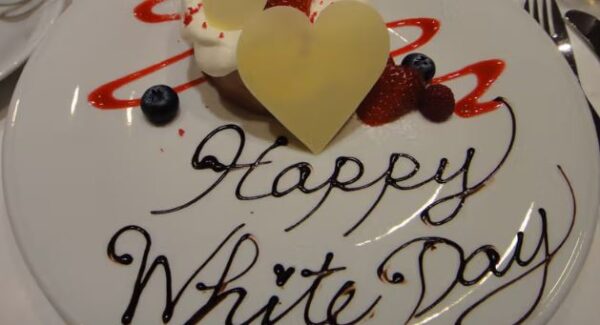
Love is a universal language, but Japan has its own dialect.
In the Land of the Rising Sun, Valentine’s Day takes a twist with the advent of White Day, celebrated on March 14th. This isn’t just about chocolates and flowers; it’s a distinctive approach to love, relationships, and social customs.
Unlike the typical exchange of gifts between couples, February 14th in Japan sees women taking the initiative to express their feelings through chocolate. “Giri-choco,” meaning “obligation chocolate,” are tokens of appreciation gifted to male friends, colleagues, and even bosses.
These affordable treats acknowledge social bonds and strengthen connections within communities. But for those harbouring deeper emotions, “honmei-choco” or “true feeling chocolate” are gifted. These personalised gifts convey heartfelt affection to potential or existing romantic partners.
Whether it’s a gesture of love or just courtesy, this tradition left men in a bit of a pickle on how to reciprocate. White Day was then created to balance the scales of love!
‘White Day’ was first introduced by the National Confectionery Industry Association in Japan as an “answer day” to Valentine’s. The concept? Simple, yet brilliant. One month after Valentine’s Day (March 14), men are encouraged to return the favour to the women who gifted them chocolates, but here’s the twist – the return gift is supposed to be three times more valuable!
Why three times, you ask? Well, it’s all part of the ‘sanbai gaeshi’ custom, which translates to ‘triple the return’. It symbolises a man’s appreciation and affection.
The typical gifts are not just limited to white chocolates. Men often go for marshmallows, jewellery, lingerie, and even white clothing. The choice of gift can be a subtle indicator of a man’s feelings. For instance, if he gifts just a simple marshmallow, it might mean he’s not that into you. On the other hand, a lavish gift could signal serious intentions.
But it’s not all about romantic love. Similar to Valentine’s Day in Japan, White Day is also about showing gratitude. It extends beyond couples to friends, family, and colleagues. This inclusivity adds a lovely communal feel to the occasion.
White Day has since spread to other East Asian countries like South Korea and China, each adding their own cultural twists to the celebration. It’s fascinating to see how a single day can evolve and adapt across borders

